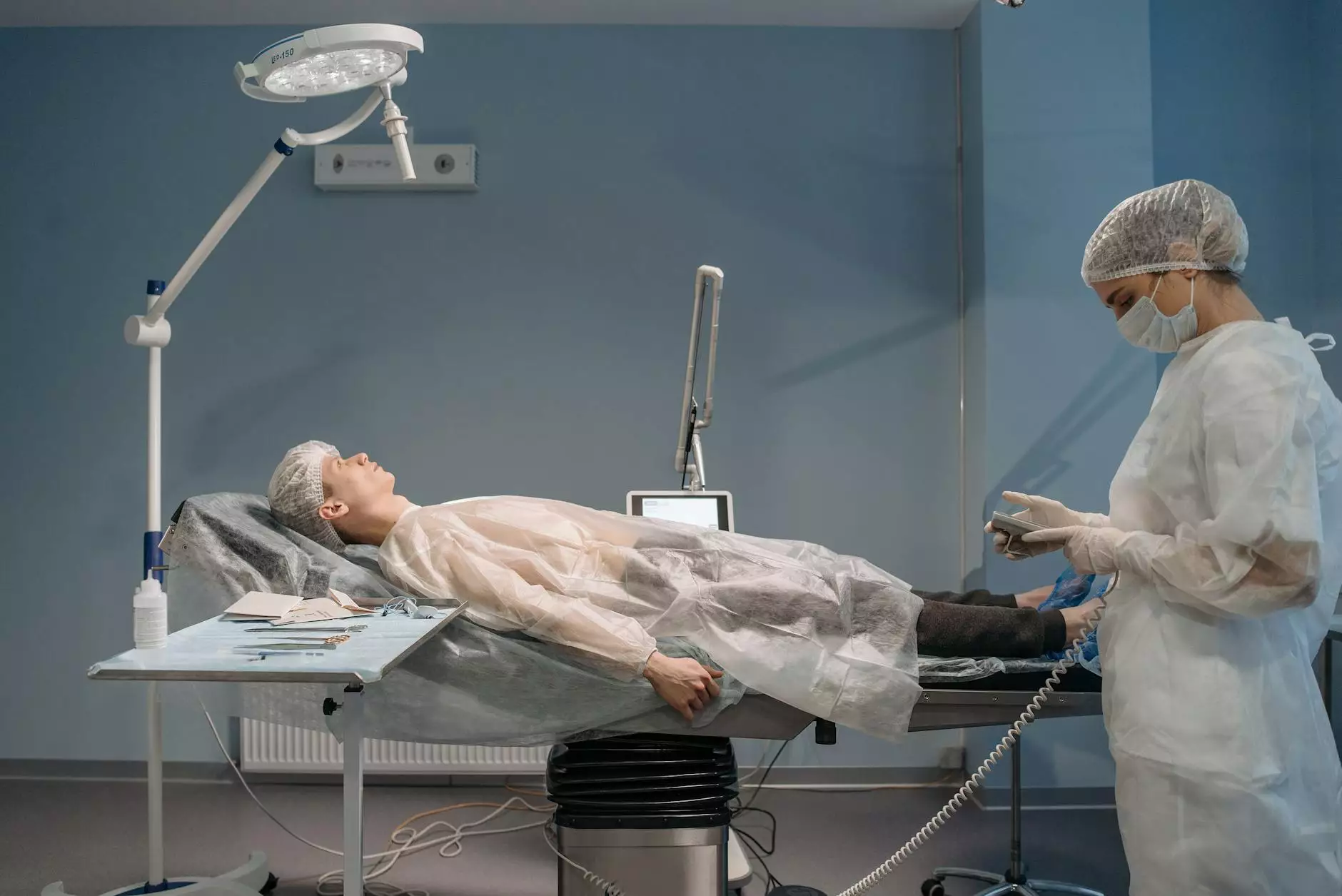Understanding Sleeve Gastrectomy: A Comprehensive Guide

In recent years, sleeve gastrectomy has emerged as one of the most recommended and effective weight-loss surgical procedures across the globe. At Antalya Health, we are dedicated to providing you with unparalleled insights into this transformative procedure, including its mechanisms, benefits, and critical considerations for those contemplating this life-changing decision.
What is Sleeve Gastrectomy?
Sleeve gastrectomy is a form of weight-loss surgery that involves the removal of a significant portion of the stomach, resulting in a tube-like structure resembling a sleeve. This procedure typically results in reduced appetite, early satiety, and significant weight loss for patients struggling with obesity. The surgery is minimally invasive, usually performed laparoscopically, which means smaller incisions and a quicker recovery time for patients.
How Does Sleeve Gastrectomy Work?
Understanding the mechanism of sleeve gastrectomy is vital for potential candidates:
- Removal of Stomach Portion: Approximately 75-80% of the stomach is surgically removed.
- Hormonal Changes: The surgery reduces the production of ghrelin (the hunger hormone), leading to a decreased appetite.
- Reduced Stomach Capacity: The new stomach can hold significantly less food, promoting smaller portions and healthier eating habits.
- Metabolic Effects: Patients often experience metabolic changes that enhance weight loss and improve overall health.
The Benefits of Sleeve Gastrectomy
Many individuals consider sleeve gastrectomy after exploring other weight loss options without success. Here are some of the significant benefits:
- Significant Weight Loss: Most patients lose 50-70% of their excess weight within the first 12-18 months.
- Improved Quality of Life: Patients report better mobility, increased energy, and improved self-esteem.
- Reduction of Obesity-Related Conditions: Many patients experience remission of conditions such as type 2 diabetes, hypertension, and sleep apnea.
- Minimal Scarring: The laparoscopic approach results in smaller incisions compared to traditional open surgery, ensuring less scarring and quicker recovery.
Who is a Candidate for Sleeve Gastrectomy?
Sleeve gastrectomy is suitable for individuals who:
- Are classified as morbidly obese (typically with a BMI of 40 or greater, or 35 with obesity-related conditions).
- Have unsuccessfully tried traditional weight loss methods (diet, exercise, pharmaceuticals).
- Understand the commitment to lifestyle changes post-surgery.
- Are willing to regularly attend follow-ups and nutritional counseling.
The Risks and Considerations of Sleeve Gastrectomy
As with any surgical procedure, sleeve gastrectomy comes with potential risks. It's essential for patients to discuss these with their healthcare provider:
- Surgical Risks: Like any surgery, there are risks of bleeding, infection, and complications associated with anesthesia.
- Weight Regain: While many patients achieve significant weight loss, some may regain weight if they do not adhere to dietary guidelines or lifestyle changes.
- Nutritional Deficiencies: Patients might experience deficiencies in vitamins and minerals (like Vitamin B12, Iron, Calcium) and will need to commit to lifelong supplementation.
- Stomach Complications: Rare complications can include leakage, strictures, or obstruction in the stomach.
What to Expect During the Sleeve Gastrectomy Procedure?
The sleeve gastrectomy procedure typically unfolds as follows:
- Pre-operative Preparation: Patients undergo a thorough evaluation, including medical history, psychological assessment, and nutritional counseling.
- Day of Surgery: The surgery is performed under general anesthesia, usually lasting about 1-2 hours.
- Post-operative Care: Patients are monitored in a recovery room and may stay in the hospital for 1-2 days.
- Initial Recovery Phase: A liquid-only diet is recommended for the first few weeks after surgery, gradually progressing to pureed foods and then regular foods.
Recovery and Lifestyle Changes After Sleeve Gastrectomy
Success after sleeve gastrectomy doesn't end with the surgery; it requires a commitment to long-term lifestyle changes. Here are some aspects to consider:
- Dietary Adjustments: Focus on a high-protein and low-carbohydrate diet to maximize weight loss and maintain muscle mass.
- Regular Exercise: Incorporating physical activity is crucial for maintaining weight loss and boosting overall health.
- Support Groups: Engaging in support groups can provide motivation and shared experiences to help navigate challenges post-surgery.
- Follow-up Appointments: Consistent follow-ups with healthcare professionals for monitoring progress and nutritional assessment are essential.
Antalya Health: Your Partner in Sleeve Gastrectomy
At Antalya Health, our experienced team is dedicated to ensuring that each patient receives personalized care throughout their sleeve gastrectomy journey. We pride ourselves on:
- Expertise: Our surgeons specialize in bariatric procedures and have performed numerous successful sleeve gastrectomies.
- Comprehensive Care: From initial consultations to post-operative support, we provide comprehensive services tailored to each individual's needs.
- State-of-the-art Facilities: Our modern medical center is well-equipped, ensuring patient safety and comfort throughout the process.
- Patient Education: We believe that informed patients make the best decisions about their health, and we provide all necessary information to ease any concerns.
Conclusion
Sleeve gastrectomy is more than just a surgical procedure—it's a gateway to a healthier and more fulfilling life for many individuals battling obesity. With the right support, dedication, and lifestyle changes, the results can be transformative. If you are considering this option, reach out to Antalya Health for an in-depth consultation and take the first step towards reclaiming your health.
Make the change today for a brighter, healthier tomorrow with sleeve gastrectomy.









